

Teaching online with Comprehensible Input - Online teaching with Comprehensible Input. A few months ago I attended a workshop "PQA" with Kirstin Plante and Carmen Meester.I had already seen Justin Slocum Bailey and Sabrina Sebban-Janczak at work in Agen, where they also did a PQA with us.
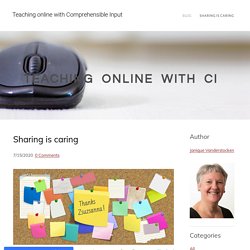
So I was convinced of the value of this method.Already in the 1st week of september I tried to do a PQA with my students, but that was disappointing! I soon realized that a good PQA is so much more than a 'class discussion' with your students. And so I was very happy to have the opportunity to attend the workshop with Kirstin and Carmen. I still find it difficult to find 'good questions' for a PQA, because the 'quality' of your PQA depends entirely on the questions you ask.So, if you have already done a nice PQA with your students, let me know the question you asked.
Teenager Courses. Course dates: 24th June – 9th August 2019 Start any MondayFlexible syllabus15 hours tuition per weekFull-board homestay accommodation*Maximum 15 per classFully supervised fully-inclusive social programme (see sample social programme)All course materials includedPlacement testEnd-of-course certificateStudent identity card24-hour emergency phone number * Accommodation is arranged either in single or shared rooms according to availability The school is located in the city centre, with comfortable classrooms, a short walk from all the city’s facilities.
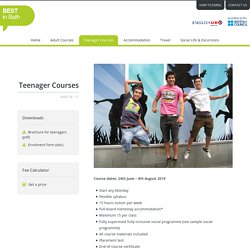
The school is owned and managed by people who live in Bath, and love living here! We are experienced educational specialists. Safety and Security We place high importance on the safety and security of our students, and have many years’ experience in dealing with teenagers. Fees. Letters From A Traveling Girl ~ Stories and tips from my travels and adventures around the world. Sign in - Google Accounts. One account.
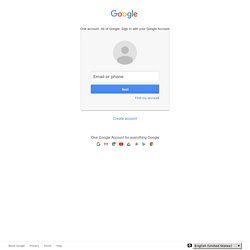
All of Google. Sign in with your Google Account. Blog. Tanári kincsestáram. Untitled. Tanulás közben alkotni, játék közben tanulni?
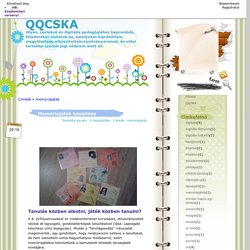
A 8. évfolyamosokkal az irodalomtörténet korszakait, stílusirányzatait néztük át lapozgató, gondolattérképek készítésével (lásd. Lapozgató készítése című bejegyzés). Miután a "felvilágosodás" irányzatát megismertük, úgy gondoltam, hogy rendszerezni kellene a tanultakat, de nem szerettem volna hagyományos módszerrel, ezért memóriajátékot készítettünk a bemutatott ötletadó társasjáték mintájára. Krisztina T. Médiafüzet. 450. A rendszerbe való beépülés lehetőségei - A nyomor széle. Öt éve múlt, hogy elkezdtük ezt a stratégiaszerű esélyteremtő munkát.
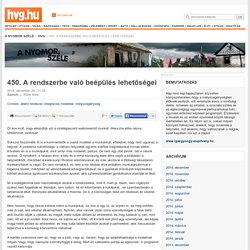
Messzire előre nézve, türelemmel, óvatosan. Kezdőlap. E-K.E.V.A. - Főlap. July, 20 1969 - One giant leap for mankind. 45 years ago man landed on the Moon.
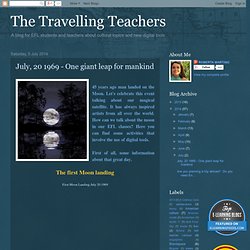
Let's celebrate this event talking about our magical satellite. It has always inspired artists from all over the world. How can we talk about the moon in our EFL classes? Here you can find some activities that involve the use of digital tools. First of all, some information about that great day. The first Moon landing First Moon Landing-July 20 1969 Surf the following sites to get more information.Nasa: Apollo 11: A day in the life aboard the International Space Station (some videos from the space!) Videótanár, az a borzalmas fertő. Kis híján napra pontosan fél évvel ezelőtt írtam ezen a blogon a Videótanár kezdeményezésről.
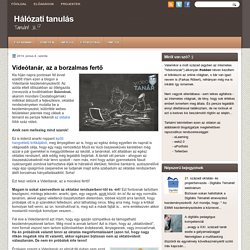
Az azóta eltelt időszakban az ötletgazda (nevezzük a továbbiakban Bolondnak, akarom mondani Csodabogárnak) milliókat áldozott a fejlesztésre, oktatási rendezvényeken mutatta be a kezdeményezést, különféle webes felületeken jelentek meg cikkek a témáról és persze felkerült az oldalra több száz videó. Amik nem mellesleg mind szarok! Experimenting with English (Part 2) – Activities for learners to do outside the classroom [26 and counting!]
In my blog post Experimenting with English: scaffolding learner autonomy, I discussed how I approached helping my learners to use English outside the classroom, drawing on learner autonomy theory and methodology (e.g.
![Experimenting with English (Part 2) – Activities for learners to do outside the classroom [26 and counting!]](http://cdn.pearltrees.com/s/pic/th/experimenting-reflections-83028347)
Benson, 2011; Oxford, 2003; Smith 2003). Central to that project, alongside the very important element of discussion, was a handout I created for my learners. Here is a screenshot of a sample page, taken from the listening section: Sample page from my Experimenting with English activities handout, listening section. As you can see, the handout consists of a series of activities for learners to try, with space for them to record when they tried it and what they thought of it. In my experience, as I mentioned in the Experimenting with English blog post, simply giving the learners this handout is insufficient.
Of course, my learners are busy people and the time they have for out-of-class study is limited. Here are the handouts: The 5 Critical Categories of Rules. Choices and Limits I fully agree that children need choices, a lot more than they get now in their school experience.
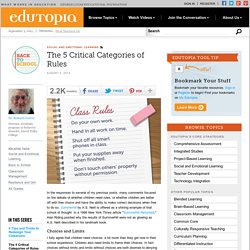
Children also need limits to frame their choices. In fact choices without limits and limits without choices are both doomed to denying children the opportunity of learning how to act responsibly. The extreme of each position is this: Limits without choices: "Do what I say or else. " Neither of these options works in school, but when we combine the two, we have a symbiotic relationship that is designed to teach responsibility: "You cannot hit. Limits Are Rules. Edmund Dudley's blog.